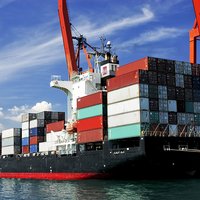Decarbonisation Pathways for the Port of Rotterdam Region
Measures to facilitate a profound decarbonisation of the port area

Measures to facilitate a profound decarbonisation of the port area

On behalf of the Port of Rotterdam Authority, the Wuppertal Institute developed three possible pathways for a decarbonised port of Rotterdam until 2050. The port area is home to about 80 per cent of the Netherlands' petrochemical industry and significant power plant capacities. Consequently, the port of Rotterdam has the potential of being an international leader for the global energy transition, playing an important role when it comes to reducing CO2 emissions in order to deliver on the EU's long-term climate goals.
The three decarbonisation scenarios all built on the increasing use of renewables (wind and solar power) and the adoption of the best available technologies (efficiency). The analysis focuses on power plants, refineries and the chemical industry, which together are responsible for more than 90 per cent of the port area's current CO2 emissions.
The decarbonisation scenarios describe how CO2 emissions could be reduced by 75 to 98 per cent in 2050 (compared to 2015). Depending on the scenario, different mitigation strategies are relied upon, including electrification, closure of carbon cycles or carbon capture and storage (CCS). The study includes recommendations for local companies, the Port Authority as well as policy makers. In addition, the study includes a reference scenario, which makes it clear that a "business as usual" mentality will fall well short of contributing adequately to the EU's long-term climate goals.
The study was conducted by Sascha Samadi, Stefan Lechtenböhmer, Clemens Schneider, Karin Arnold, Manfred Fischedick, Dietmar Schüwer and Andreas Pastowski (all Wuppertal Institute). The project team received external support during the course of the project from Emile Chappin and Rob Stikkelman from the Delft University of Technology.
For further information, please see the Port's press release or the project description. The study is available for free download from the Wuppertal Institute's publication server.
